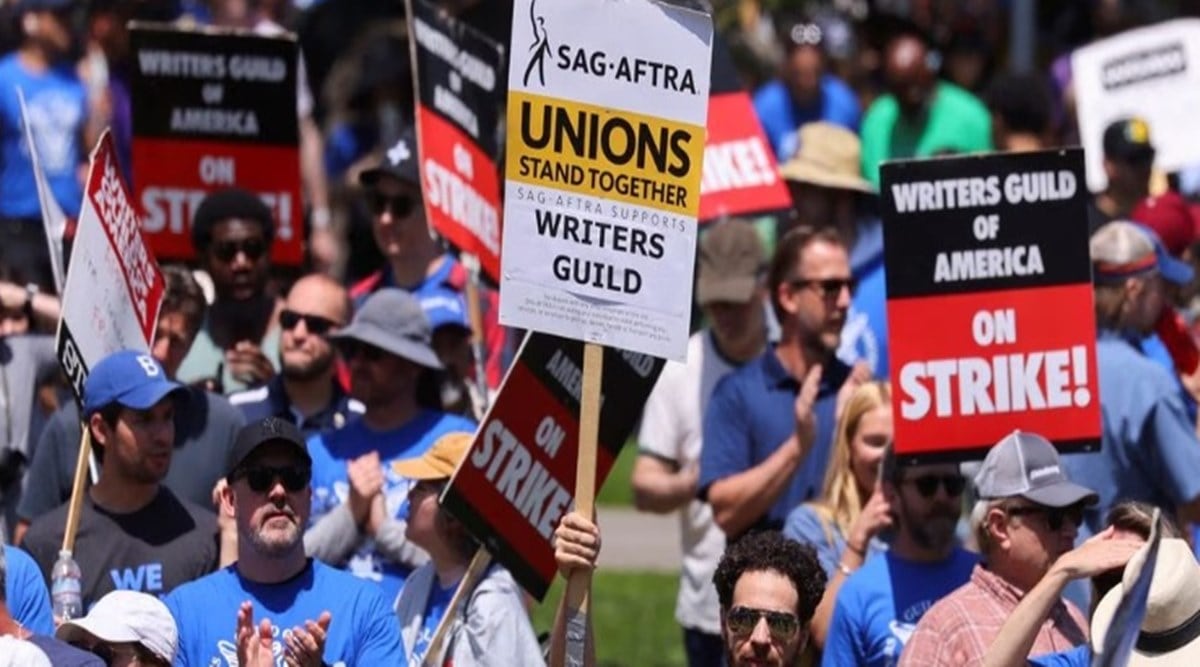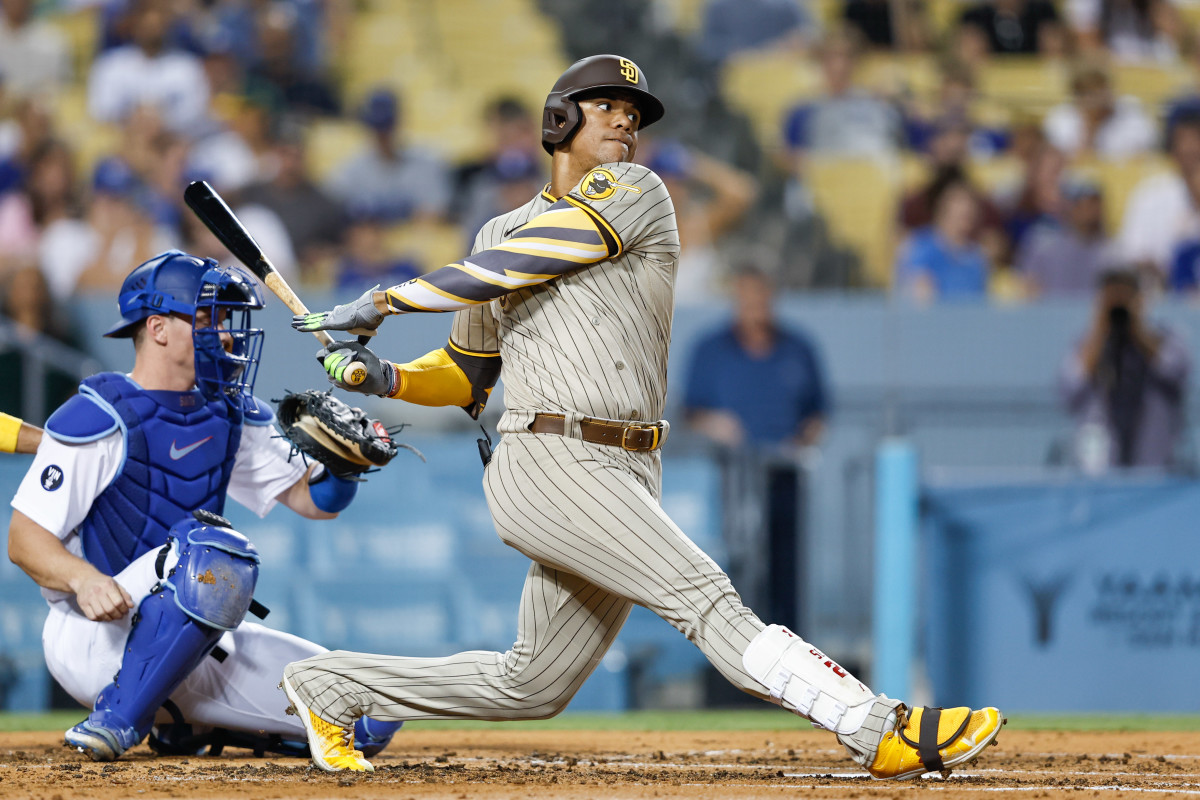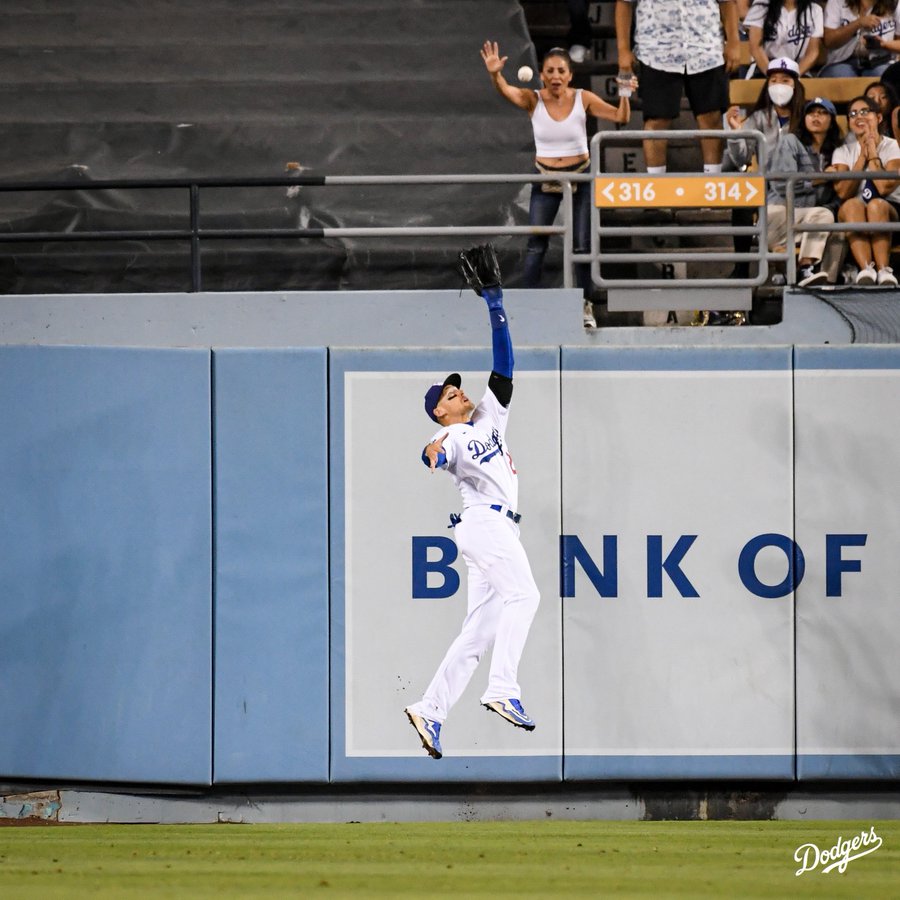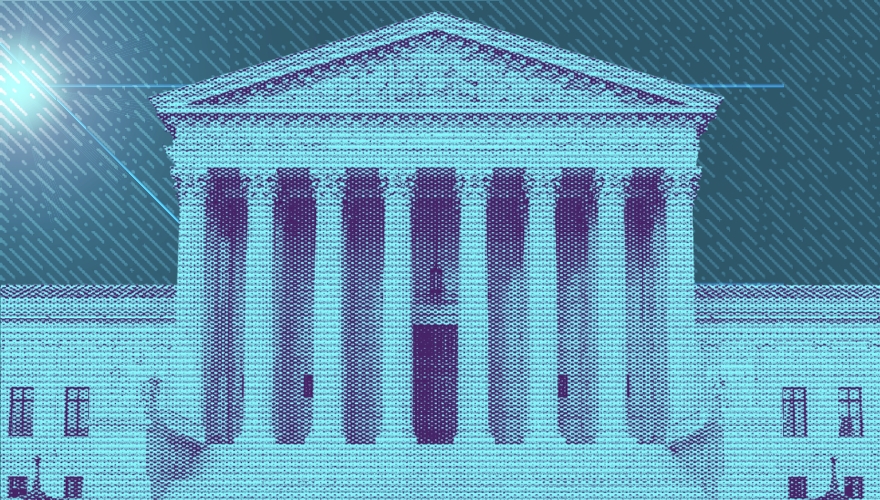Double Trouble In Hollywood: Writers' And Actors' Strikes Cripple Production

Table of Contents
The simultaneous walkouts by the Writers Guild of America (WGA) and the Screen Actors Guild – American Federation of Television and Radio Artists (SAG-AFTRA) have created a perfect storm, impacting not only production but also the livelihoods of thousands and the future of the industry itself. The combined effect of these strikes is unprecedented, creating a crisis that demands attention and action.
The Writers' Strike: Demands and Impact
The WGA strike, which began in May 2023, stems from years of simmering discontent over fair compensation and working conditions in the rapidly evolving entertainment landscape.
Key Demands of the Writers Guild of America (WGA)
The WGA's core demands center around several key issues:
- Fair Wages and Residuals in the Streaming Era: The rise of streaming services has drastically altered the revenue model for writers, with significantly reduced residuals compared to the traditional network television model. The WGA is fighting for a fairer share of the profits generated by streaming platforms.
- Protection Against AI-Driven Writing Tools: The increasing use of AI in writing scripts is a major concern for the WGA, who are demanding safeguards to prevent AI from replacing human writers.
- Improved Working Conditions: The WGA seeks to improve working conditions for writers, including minimum staffing levels and an end to exploitative practices.
Here are some specific demands detailed by the WGA:
- Minimum staffing levels on productions.
- Increased minimum pay rates for writers.
- Transparent and fair revenue sharing models across all platforms.
- Regulations on the use of AI in writing.
The Ripple Effect of the Writers' Strike
The writers' strike has already had a significant impact on the entertainment industry:
- Delayed Television Show and Movie Releases: Numerous television shows and movies have faced significant delays, pushing back release dates indefinitely.
- Halted Production on Numerous Projects: Production on countless projects has been completely halted, creating a backlog that will take months, if not years, to clear.
- Impact on Writers' Livelihoods and Freelance Opportunities: The strike has severely impacted the livelihoods of many writers, particularly freelancers who rely on project-to-project work.
Examples of delayed projects include:
- The Late Show with Stephen Colbert (CBS)
- Many late-night talk shows (Various networks)
- Numerous unscripted and scripted television series (Various networks and streaming services)
The Actors' Strike: SAG-AFTRA's Fight for Fair Compensation
Joining the WGA on the picket lines is SAG-AFTRA, representing actors and other performers. Their strike, which began in July 2023, amplifies the crisis and further cripples production.
SAG-AFTRA's Core Concerns
SAG-AFTRA's demands mirror those of the WGA, focusing on:
- Fair Wages and Residuals, Especially in Streaming: Similar to writers, actors are facing reduced compensation in the streaming era, demanding fairer payment structures.
- Protection Against AI Usage in Replacing Actors: The use of AI to recreate actors' performances without their consent or compensation is a major point of contention.
- Improved Health and Pension Benefits: SAG-AFTRA is also seeking improvements to health and pension benefits for its members.
Specific concerns highlighted by SAG-AFTRA include:
- The use of AI to create digital doubles of actors without their consent or compensation.
- Self-tape auditions without fair payment for actors' time and effort.
- The need for greater transparency in streaming revenue and residuals.
How the Actors' Strike Exacerbates the Crisis
The actors' strike has dramatically escalated the situation:
- Complete Shutdown of Many Productions (Writers and Actors Needed): With both writers and actors on strike, virtually all film and television productions have ground to a complete halt.
- Impact on Actors' Income, Including Background Actors: The strike impacts not only lead actors but also background actors and other performers who rely on daily wages.
- Growing Uncertainty About the Future of the Entertainment Industry: The prolonged strikes have created significant uncertainty about the future of the entertainment industry, prompting questions about its sustainability and the future of creative work.
Examples of productions shut down due to the combined strikes include:
- Stranger Things (Netflix)
- House of the Dragon (HBO)
- Numerous film productions (Various studios)
The Combined Impact on the Entertainment Industry and Viewers
The combined effect of the writers' and actors' strikes is devastating.
Economic Fallout
The strikes have significant economic consequences:
- Lost Revenue for Studios and Production Companies: Studios and production companies are facing massive losses in revenue due to halted production.
- Job Losses Extending Beyond Writers and Actors: The strikes are causing widespread job losses, impacting crew members, technicians, and other professionals in the entertainment industry.
- Impact on Local Economies Dependent on Film and Television Production: The strikes are also affecting local economies that rely heavily on film and television production.
Impact on Viewers
The strikes have a direct impact on viewers:
- Delayed Releases of Anticipated Shows and Films: Viewers are facing delays in the release of highly anticipated shows and films.
- Reduced Availability of New Content: The lack of new productions means less content for viewers to consume.
- Potential for Changes to the Way Television and Film Are Produced and Consumed: The outcome of these strikes could fundamentally alter how television and film are produced and consumed in the future.
Conclusion
The dual Hollywood strike represents an unprecedented crisis in the entertainment industry. The simultaneous walkouts by the WGA and SAG-AFTRA highlight critical issues regarding fair compensation, the impact of AI, and the need for improved working conditions. The consequences are far-reaching, impacting not only writers and actors but also the entire industry and viewers worldwide. The demands of both the WGA and SAG-AFTRA are crucial for ensuring the long-term health and sustainability of the entertainment industry. Stay informed about the Hollywood strike by following news outlets and supporting the striking writers and actors. You can learn more and potentially offer support through the WGA's website ([link to WGA website]) and SAG-AFTRA's website ([link to SAG-AFTRA website]). The outcome of this writers' strike and actors' strike will significantly shape the future of Hollywood and how we experience entertainment for years to come.

Featured Posts
-
 Tatar In Aciklamalari Sonrasi Direkt Ucuslar Ve Kibris Sorunu Yeni Bir Doenem
May 15, 2025
Tatar In Aciklamalari Sonrasi Direkt Ucuslar Ve Kibris Sorunu Yeni Bir Doenem
May 15, 2025 -
 San Diego Padres Game Preview Lineup Key Matchups And Sweep Potential
May 15, 2025
San Diego Padres Game Preview Lineup Key Matchups And Sweep Potential
May 15, 2025 -
 Shocking Study Reveals Widespread Pfas Contamination In Us Drinking Water
May 15, 2025
Shocking Study Reveals Widespread Pfas Contamination In Us Drinking Water
May 15, 2025 -
 A Second Chance In Blue The Story Of A Dodgers Comeback
May 15, 2025
A Second Chance In Blue The Story Of A Dodgers Comeback
May 15, 2025 -
 Gop Mega Bill A Detailed Breakdown And The Upcoming Battle
May 15, 2025
Gop Mega Bill A Detailed Breakdown And The Upcoming Battle
May 15, 2025
